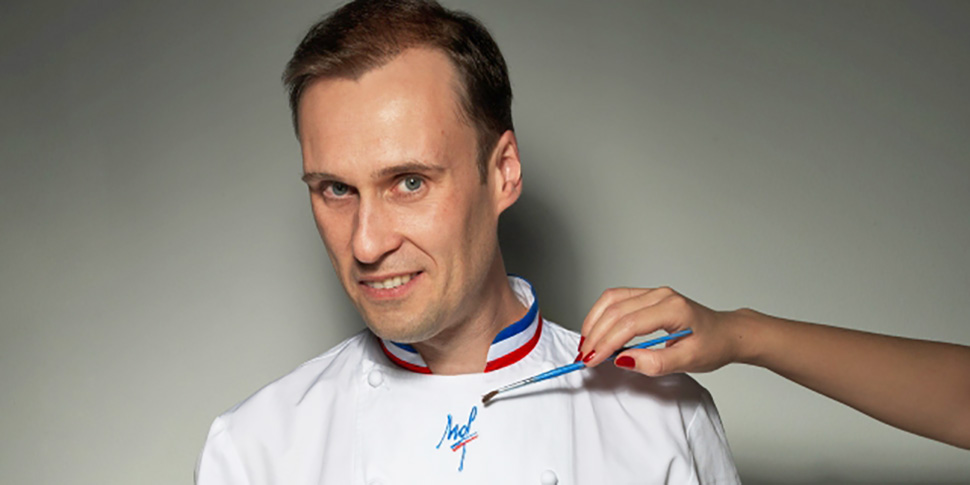What was your training? Why chocolate?
First of all I took my Pastry CAP vocational qualification in a vocational school in Brittany before doing a certificate of proficiency sandwich course in Lannion. This is where I finally came into contact with chocolate. I was lucky that my supervisors were all good teachers!
How did you end up in the kitchens at Maison du Chocolat?
At the end of this pastry course, I was looking for a job in my area. I went to see a chocolatier, but he didn’t have space at the time to hire me. He recommended that I write to Maison du Chocolat, which I had never heard of before. I just sent off my CV and a fortnight later I was hired.
I'm part of a generation where you learn to make products, but not to talk about them
And now you are Master Chef at Maison du Chocolat...
Indeed, after four years at the company, at the moment I was about to leave, Robert Linxe, the founder of Maison du Chocolat, asked to see me and asked if I wanted to set up a department dedicated to the creation of artistic pieces—something which did not previously exist. I was 26 years old and he was giving me carte blanche! So I never left and started taking competitive exams. In 2007, I received the Meilleur Ouvrier de France award (Best Craftsman of France) as chocolatier-confectioner, and the same year, we had a workshop dedicated to the creation of products.
In your opinion, is it necessary to undertake formal training to become a chocolatier?
Training is essential: it enables young people to acquire the foundations of our profession. We are seeing more and more self-taught pastry chefs in the industry—I even have one in my team. But you can tell when someone doesn’t have that foundation. Another important aspect, in my opinion, is that of communication. I'm part of a generation where you learn to make products, but not to talk about them. And when I was given communications projects, I had to train to get up to speed. This is essential today, and it can only improve with training in schools!
We are seeing more and more self-taught pastry chefs in the industry. But you can tell when someone doesn’t have that foundation
What advice would you give to a young person wanting to embark on a career in chocolate?
I’d be a bit of a killjoy! But today, as we live in a world where everything goes so fast, I think it takes patience and perseverance to last over time. These are the qualities that I look for. If you want to make chocolate, it is important to take the time to know about all the aspects and phases of chocolate making.
The Institut Culinaire offers a training course "From bean to bar" that broaches the entire process of making chocolate...
This is a very good thing. Personally, I choose my colleagues, to join me in the creative department, amongst those already working in production because I consider it to be a strength. This is also my strongpoint at Maison du Chocolat: I have authority with them because I went through the same departments as them, and I have experienced what they are experiencing. But all this was built over time—it was a long-term project.
